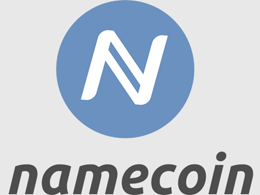
Are decentralized digital identities the future or just a niche use case?
Are decentralized digital identities the future or are they a niche use case for blockchain technology doomed to solely be used by crypto natives? As users take advantage of online services and explore the internet, they eventually create a digital identity. This type of identity is then tied to central entities like Google and Facebook, which make it easier to share data with new services through simple sign-in buttons.While these digital identity management systems are convenient, they are relying on centralized intermediaries that hold and control user data. Personal identifiers and....
Related News
The concept of digital identities has gained popularity following the debut of modern-day technologies such as blockchain. Safle, a next-generation non-custodial wallet, is one of the projects currently leveraging blockchain to bring identities back to the hands of users. Unlike the centralized and federated identity models, the Safle ecosystem introduces decentralized identities, giving crypto users control over their identities and data. While the crypto market has grown exponentially, users have limited options of non-custodial wallets. Meanwhile, the ones that exist have proven to fall....
Namecoin decentralizes the world of online identities. The most common form of online identification used today is an email address. When you create a new account at any website, you usually have to provide an email address as a basic form of identification. You can then login with your email address, or a username attached to your email address, when you come back to the site in the future. While this system has worked good enough in the early years of the Internet, there are two projects in the cryptocurrency space that are looking to completely change the way online identity works for....
Non-fungible tokens (NFTs) are gradually shaping the future of the metaverse, a futuristic iteration of the internet where participants exist in a digital world through 3D virtual shared spaces. This rising crypto niche has caught the attention of creatives, given the opportunity to integrate their art with decentralized ecosystems. At the core, NFTs are digital collectibles that can be stored, shared or traded through emerging NFT marketplaces. While still a nascent niche, the NFT market has ballooned over the past few months to become one of the essential pillars of the crypto ecosystem.....
The need for secure, privacy-centric, fraud-proof digital identities that allow us to demonstrate our credentials has never been greater. A year unlike any other, when much of life went online, created a compelling case for digital identity. Talk of “immunity passports,” privacy-protecting contact tracing apps and even a potential move to online voting systems all speak to the need for robust digital identities.In July 2020, the World Economic Forum published a briefing paper covering the risks and opportunities around “the internet of bodies.” From wearable technology to connected medical....
In the last year, decentralized finance (DeFi) has gone from being a relatively unexplored crypto niche to a bustling industry filled with a diverse array of protocols and tools that offer new services and opportunities to users. As it stands, the vast majority of DeFi applications are built on the Ethereum blockchain, due to its popularity among decentralized application (dApp) developers and significant pre-existing user-base. However, this sudden growth of DeFi on Ethereum has pushed […]




